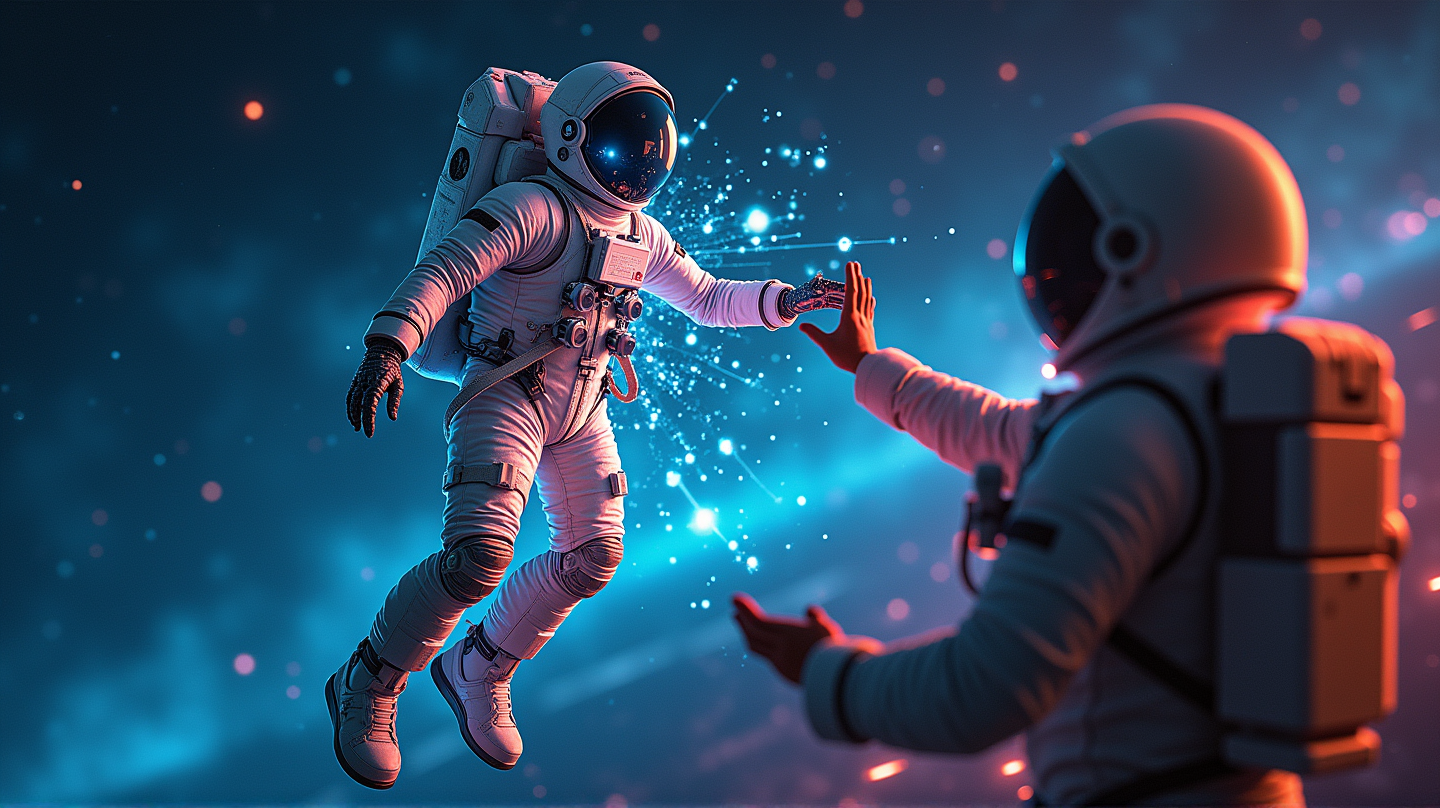In the uncharted expanses of space, where silence reigns and isolation is pervasive, astronauts embark on missions that test the limits of human endurance. The future of space exploration necessitates companion systems that offer not just practical aid but also a fair share of emotional and cognitive support. AI is poised to become an astronaut’s steadfast ally in the celestial dance of exploration.
The Need for AI in Space
Space missions demand impeccable precision and mental acuity. Yet, prolonged exposure to the harsh conditions can take its toll on astronauts. The isolation and monotony could lead to cognitive decline, impacting mission success. According to Forbes, AI companionship systems are envisioned to counter these challenges, providing a new dimension to astronaut welfare.
Brain-Computer Interfaces: The New Frontier
MIT Media Lab researchers, including Alex Karim El Adl, are at the forefront of innovation with brain-computer interface technologies. These systems utilize near-infrared spectroscopy combined with electronic sensors to monitor astronauts’ cognitive states, dynamically adjusting their environments to reduce stress and enhance performance. This technology serves as a beacon of hope for missions charting pathways to deep space.
Overcoming Current Challenges
With contemporary missions like the Artemis program experiencing delays, and astronauts on the ISS encountering extended tenures in space, technology becomes essential. Incidences of astronauts like Suni Williams and Butch Wilmore struggling with weightlessness-induced forgetfulness emphasize the need for robust AI assistance.
Augmented Reality and Robotic Teamwork
In the final frontier, collaboration between humans and machines is pivotal. Augmented reality tools are being developed to synergize astronaut interactions with robotics, laying the groundwork for more efficient and safer missions. Future explorations will rely heavily on this human-robot teamwork to face the unknowns of space with confidence and efficiency.
From Space to Earth: Grounded Applications
Interestingly, AI technologies developed for space are finding applications on Earth, particularly in fields demanding precision and safety such as air traffic control and medical care. The adaptability of these innovations underscores the reciprocal influence of space tech and terrestrial benefits.
As we propel toward an epoch where space travel is as routine as terrestrial air travel, AI stands as both a guide and guardian for astronauts navigating the stars. With its help, humanity’s celestial odysseys are destined to rise above the challenges of the beyond.
